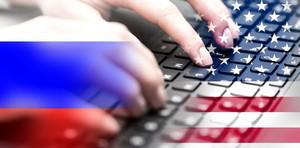The Russian connection Russia's interference in U.S. presidential election “an act of war”: Dick Cheney
Former Vice President Dick Cheney said Russia’s interference in the 2016 U.S. presidential election could be considered “an act of war.” Cheney said there was “no question” that Vladimir Putin had attempted to influence the election outcome. “There’s no question there was a very serious effort made by Putin and his government, his organization, to interfere in major ways with our basic fundamental democratic processes,” Cheney said during a speech at a business conference in New Delhi, India.

Increasig certainty of Russian election interference in U.S. election // Source: theconversation.com
Former Vice President Dick Cheney said Russia’s interference in the 2016 U.S. presidential election could be considered “an act of war.”
Cheney said there was “no question” that Vladimir Putin had attempted to influence the election outcome. “There’s no question there was a very serious effort made by Putin and his government, his organization, to interfere in major ways with our basic fundamental democratic processes,” Cheney said during a speech at a business conference in New Delhi, India.
“In some quarters, that would be considered an act of war. I think it’s a kind of conduct and activity we will see going forward. We know he’s attempted it previously in other states in the Baltics.
“I would not underestimate the weight that we, as Americans, assign to the Russian attempts to interfere with our internal political processes,” he added.
Business Insider reports that the agencies of the U.S. intelligence community have amassed evidence – based on signal intelligence, human sources, and digital forensics – establishing the fact the FSB, Russia’s domestic intelligence agency and heir to the KGB, and the GRU, the Russian military’s intelligence service, engaged in a broad hacking and disinformation campaign – the latter consisting of more than 1,000 fake-news websites — in the run-up to the November 2016 election, in order to weaken Hillary Clinton and help Donald Trump win the elections.
The FSB and the GRU also used Wikileaks — which has by now become, in effect, the publishing arm of Russian intelligence — to schedule the publication of the most damaging emails stolen from the DNC and the Clinton campaign in a manner that would be most damaging to the Clinton campaign.
Among the matters Congressional committees are now investigating is the question of whether operatives at the Trump campaign advised the FSB and GRU about what emails and documents should be stolen from the DNC and the Clinton campaign, and whether these operatives then helped Wikileaks devise a publication schedule which would be the most damaging to Clinton.
The success of the Russian cyber-campaign to help Trump win the election has emboldened them to use similar tactics in a series of European elections, the most important ones being the presidential election in France (late April and early May) and the parliamentary elections in Germany (September). In both elections, the Russians support populist, far-right, anti-immigration parties – the National Front in France and the AfD in Germany – which have a political agenda similar to that of Trump. Trump, the National Front, and the AfD all call for the weakening of the institutions and structures which have kept the Soviet Union (and, later, Russia) in check, chief among them NATO and the liberal international economic order.
Cheney said as much when he accused Putin of trying to destabilize the NATO military alliance of Western countries.
“He is doing everything he can to find ways to undermine NATO,” he said.
